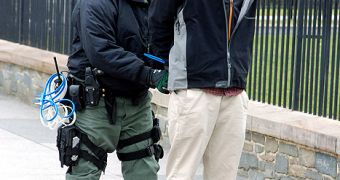This past Wednesday, Conor Kennedy, ex-boyfriend of Taylor Swift and son of Robert F. Kennedy Jr., got arrested in Washington DC following his taking part in a protest against the proposed Keystone XL pipeline.
The protest took place in Washington DC, and other public figures who decided to take part in it were Conor's father, actress Daryl Hannah, 350.org founder Bill McKibben and Sierra Club Executive Director Michael Brune.
According to the official website for the Tar Sands Action, a total of 48 environmentalists took part in this protest, which basically consisted in their setting up camp in front of the White House and demanding that Barack Obama do not give the green light to the Keystone XL tar sands pipeline project.
By the looks of it, what got them arrested was the fact that, while protesting in this manner in front of the White House, they blocked traffic and refused to move when local authorities asked them to do so.
As Conor Kennedy, his father, Daryl Hannah and the other greenheads that stood by their side during this protest explain, the Keystone XL pipeline is set to greatly increase the amounts of greenhouse gas emissions that get released into the atmosphere on a regular basis.
This is because, once approved, said pipeline would allow the tar sand industry in Canada to develop to a considerable extent.
“The Environmental Protection Agency (EPA) has estimated that this tar sands pipeline will boost annual U.S. carbon pollution emissions by up to 27.6 million metric tons – the impact of adding nearly 6 million cars on the road,” the environmentalists explain.
Commenting of his being arrested together with Conor Kennedy, Robert F. Kennedy Jr., Daryl Hannah and several other environmental activists, Bill McKibben, the founder of green-oriented group 350.org, argued as follows:
“We really shouldn’t have to be put in handcuffs to stop KXL–our nation’s leading climate scientists have told us it’s dangerous folly, and all the recent Nobel Peace laureates have urged us to set a different kind of example for the world, so the choice should be obvious.”
“But given the amount of money on the other side, we’ve had to spend our bodies, and we’ll probably have to spend them again,” Bill McKibben went on to add.

 14 DAY TRIAL //
14 DAY TRIAL //